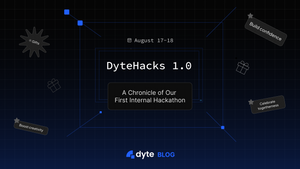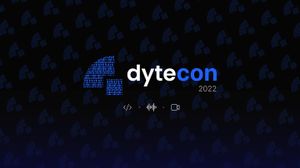A Chronicle of Our First Internal Hackathon
Last week, we took a leap into the world of creative disruption by organising an internal hackathon. This vibrant event, a fusion of unbridled creativity and technical prowess, saw our teams dive deep into problem-solving, fueled by adrenaline and a ticking clock. Collaborative energy buzzed through the air, as participants broke away from their day-to-day tasks to ideate, innovate, and co-create solutions for challenges both current and anticipated. It was a true testament to the untapped potential that emerges when boundaries are blurred and innovation takes centre stage.
Why should you run a hackathon at your company
Every company has its unique DNA, an underpinning rhythm that drives its culture, vision, and growth. For us, innovation and collaboration have always been pivotal. Hackathons, at their core, celebrate both these tenets. It's always a good idea to foster environments where employees can break away from the usual routine to brainstorm, ideate, and co-create. Team-building exercises are crucial, but what if they could also serve a dual purpose of birthing innovative solutions? That's where hackathons come into play.
Why we decided to have DyteHacks 1.0
The world is ever-evolving, and in the tech space, staying stagnant is equivalent to moving backward. DyteHacks 1.0 was not just an experiment but a conscious strategy to inject fresh ideas into our workflow, identify latent talent within our teams, and create a space where risks were celebrated over caution.
Constraints and concerns
Naturally, there were several challenges ahead:
Time: Would our daily operations be affected?
Priorities: Balancing between hackathon needs and ongoing projects.Participation: Ensuring everyone felt empowered to participate, regardless of their technical prowess.
Effective collaboration and engagement: A hackathon with the intent of team engagement for a remote company, with people from different life routines and communication requires unconventional approach.
Navigating challenges
Time Management: We established a clear schedule and ensured all participants had a buffer period before and after the hackathon to manage regular tasks.
Facilitation and planning: A separate budget was assigned for DyteHacks, ensuring our ongoing projects remained unaffected. This wasn’t done as an add-on or clubbed event for a single team or department, it was a planned activity with very well allocated resources.
Encouraging participation: Mini-events and fun sessions were organised during the hackathon, ensuring everyone had the necessary tools and confidence to pitch in.
Teams: We ended up having a very unique setup where people were purposefully put in hybrid teams, ie, every team had an in-person and virtual participant, this ensured that there was continuous communication with the virtual participants and everyone felt that they were making progress and engaging.
Judging: We brought all of the above efforts together to culminate the hackathon with judging where we used stack ranking and every team judged every team. All the teams presented their ideas and implementation in their own ways.
Expected tradeoffs
No event comes without its set of tradeoffs. We expected a slight delay in some of our ongoing projects and anticipated some fatigue post-hackathon. But the prospective advantages - a treasure trove of fresh ideas and an invigorated team spirit - were deemed well worth it.
How DyteHacks 1.0 was executed
Theme was decided, teams assigned, and resources were made accessible. To foster creativity, we ensured the themes were broad, allowing teams to interpret and mould them uniquely.
From keeping the theme open ended and simple, to engineering teams that called for a collaborative effort and exposed people to different team functions within the company.
The D day
DyteHacks 1.0 was nothing short of electrifying. From caffeinated brainstorming sessions to the palpable excitement in the air, the energy was infectious. Teams worked around the clock, and the final presentations showcased not just technical prowess but a depth of creativity and a true understanding of user needs.
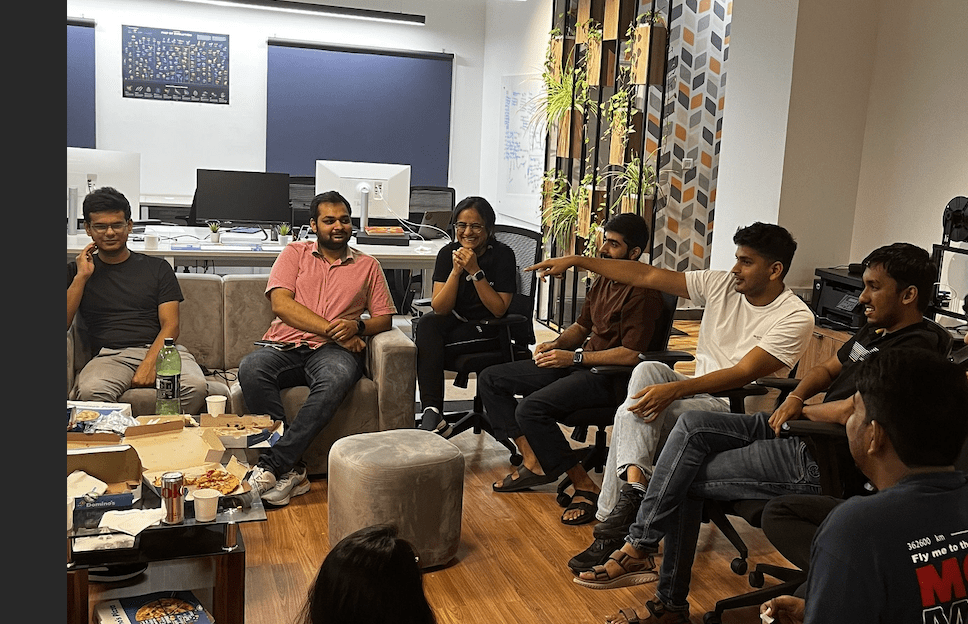
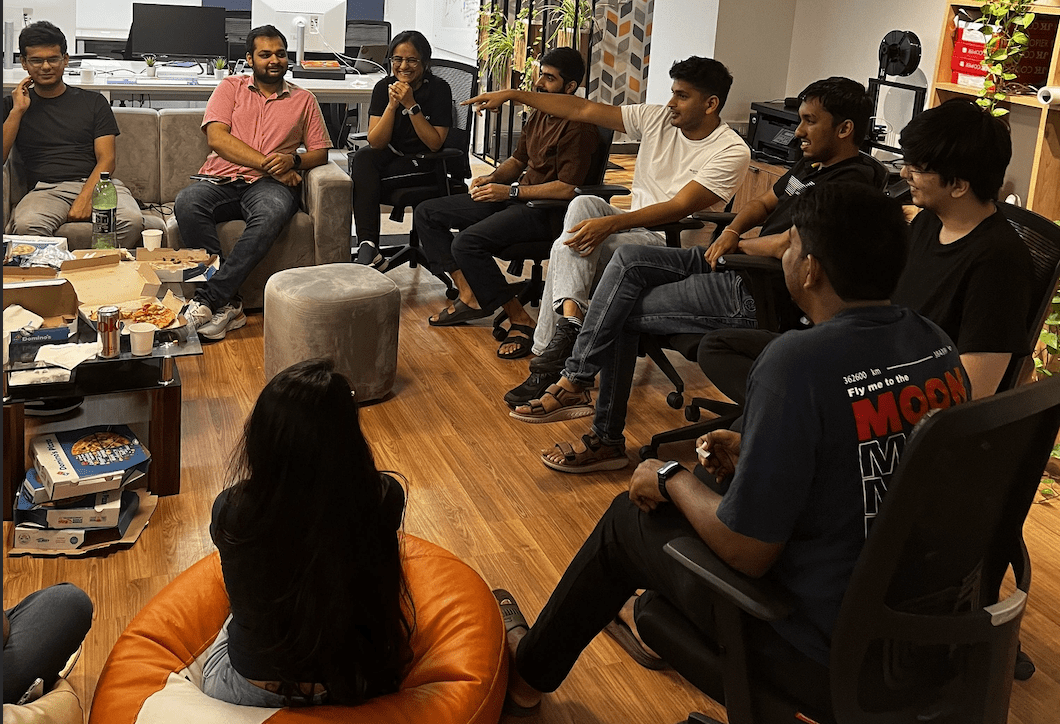
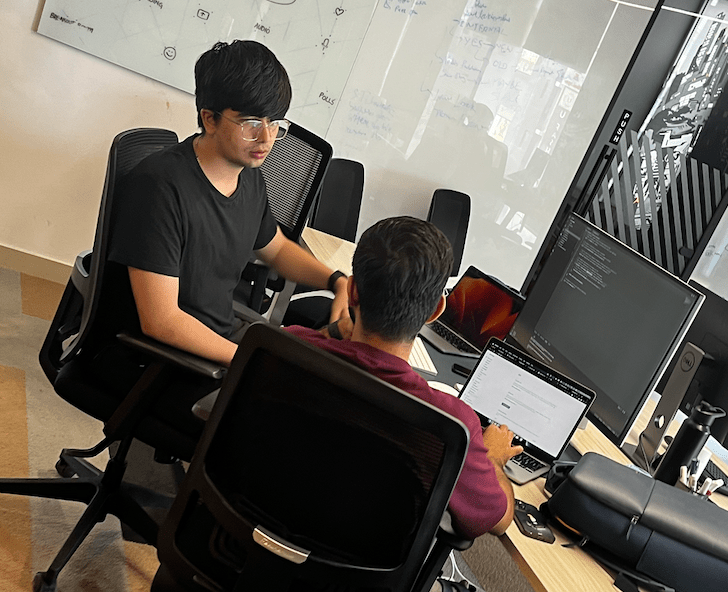
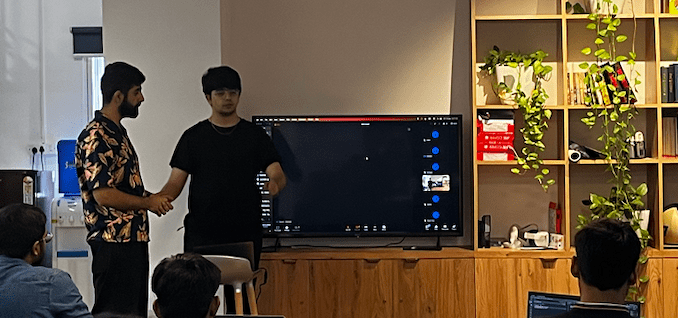
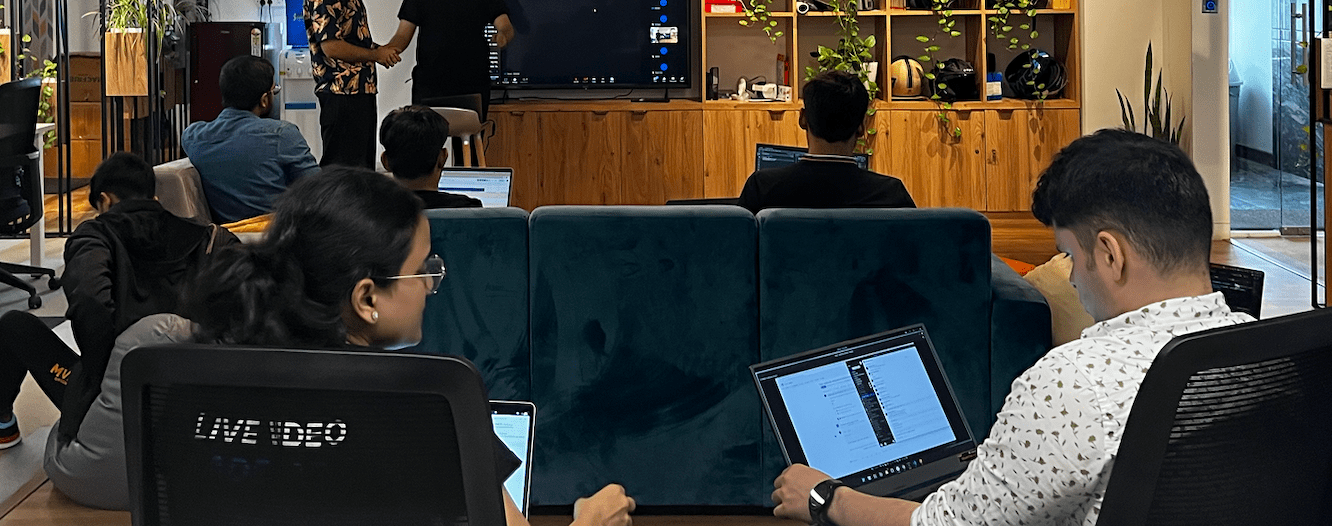
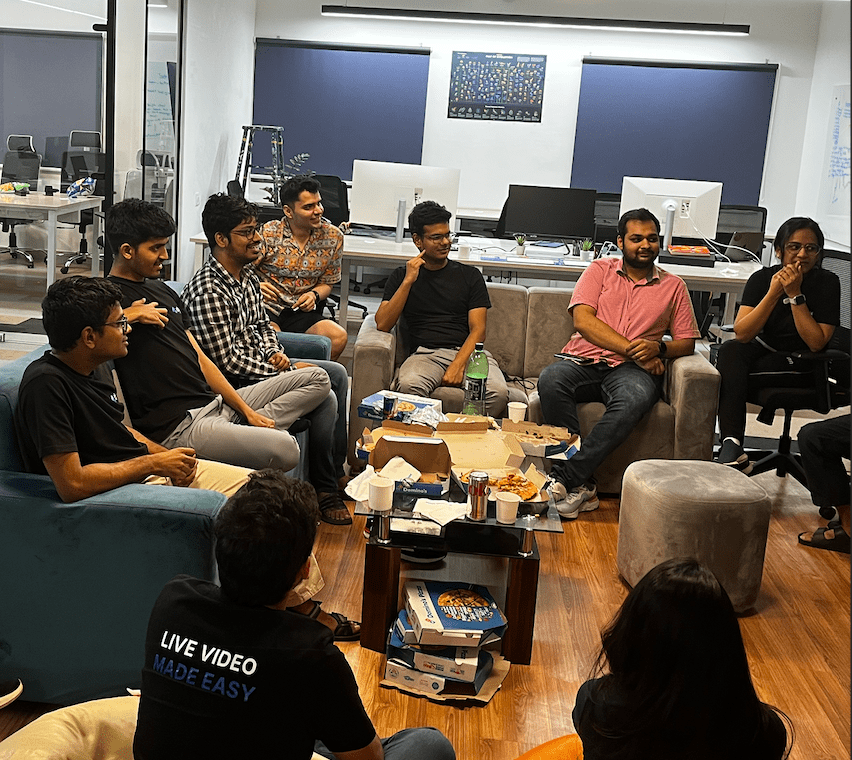
During our recent internal hackathon, beyond the intense coding and problem-solving, we infused a blend of relaxation and camaraderie. One evening was dedicated to a gripping game of Mafia, where strategies ran as deep as our coding algorithms. The aroma of diverse and delectable pizzas and snacks wafted through, offering culinary breaks and fuelling our tech-driven souls. As the night deepened, many found themselves on the terrace. Under a canopy of stars, brainstorming sessions seamlessly transitioned into nostalgic catch-ups, weaving a tapestry of innovation, memories, and shared experiences.
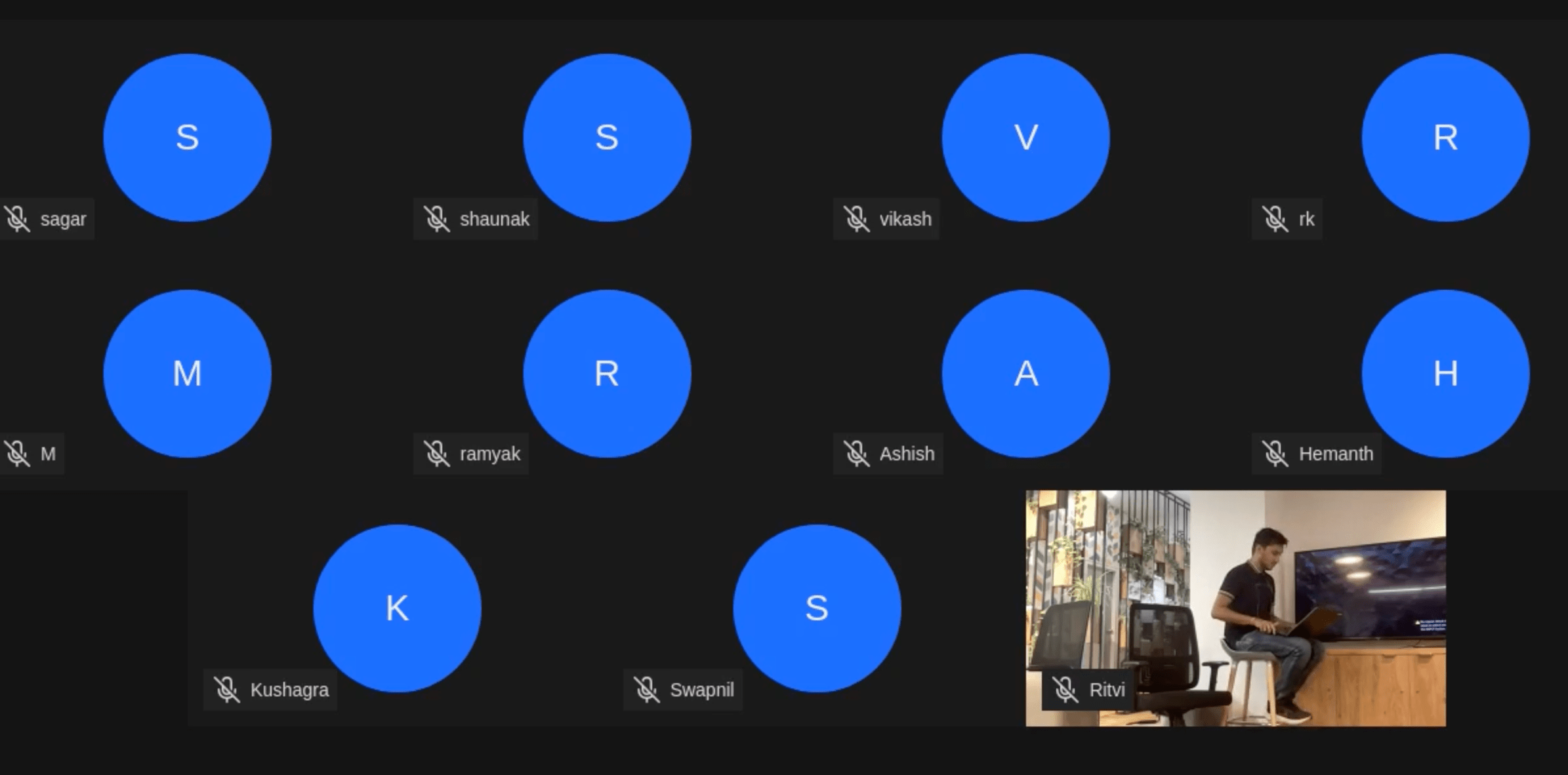
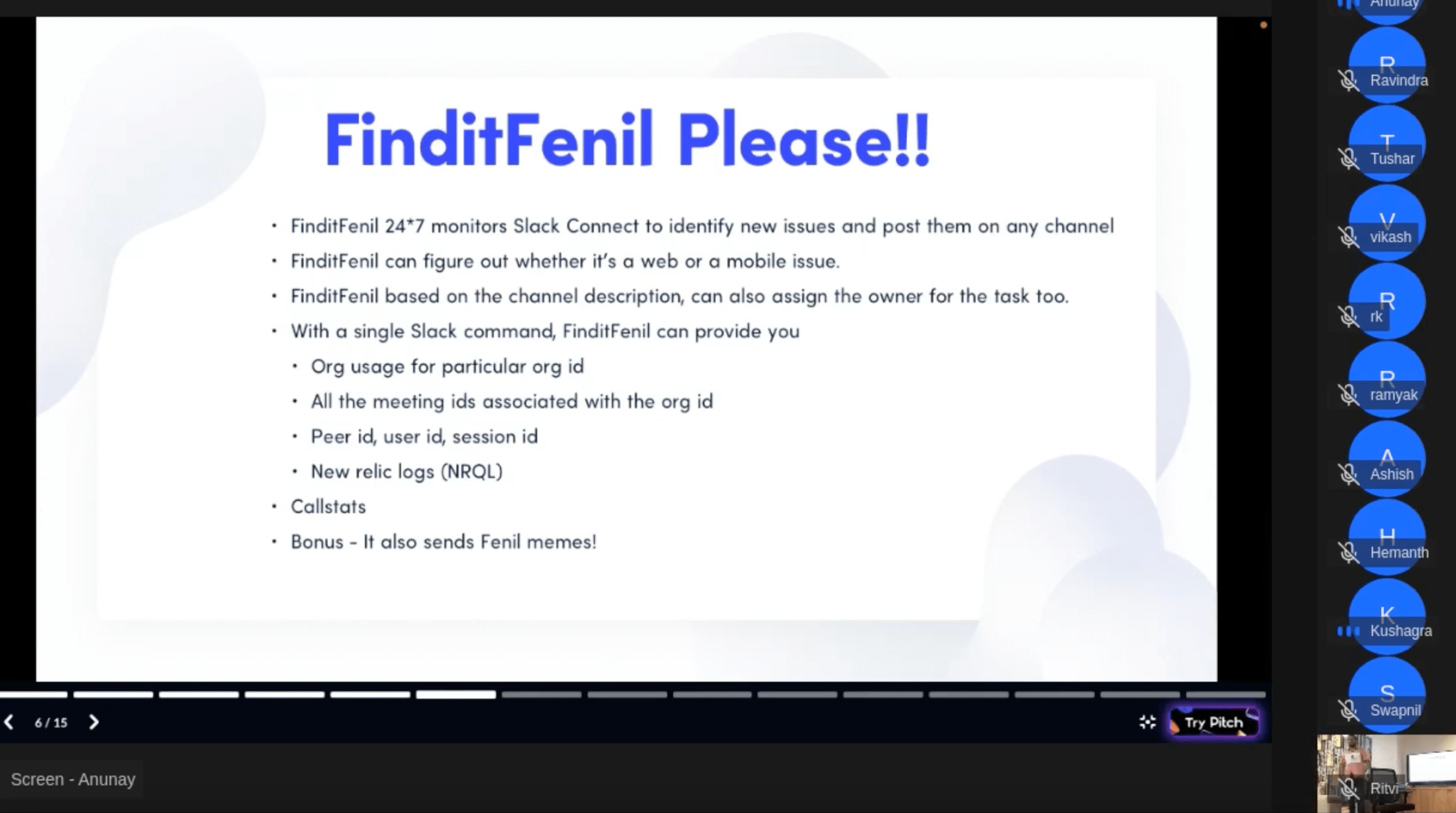
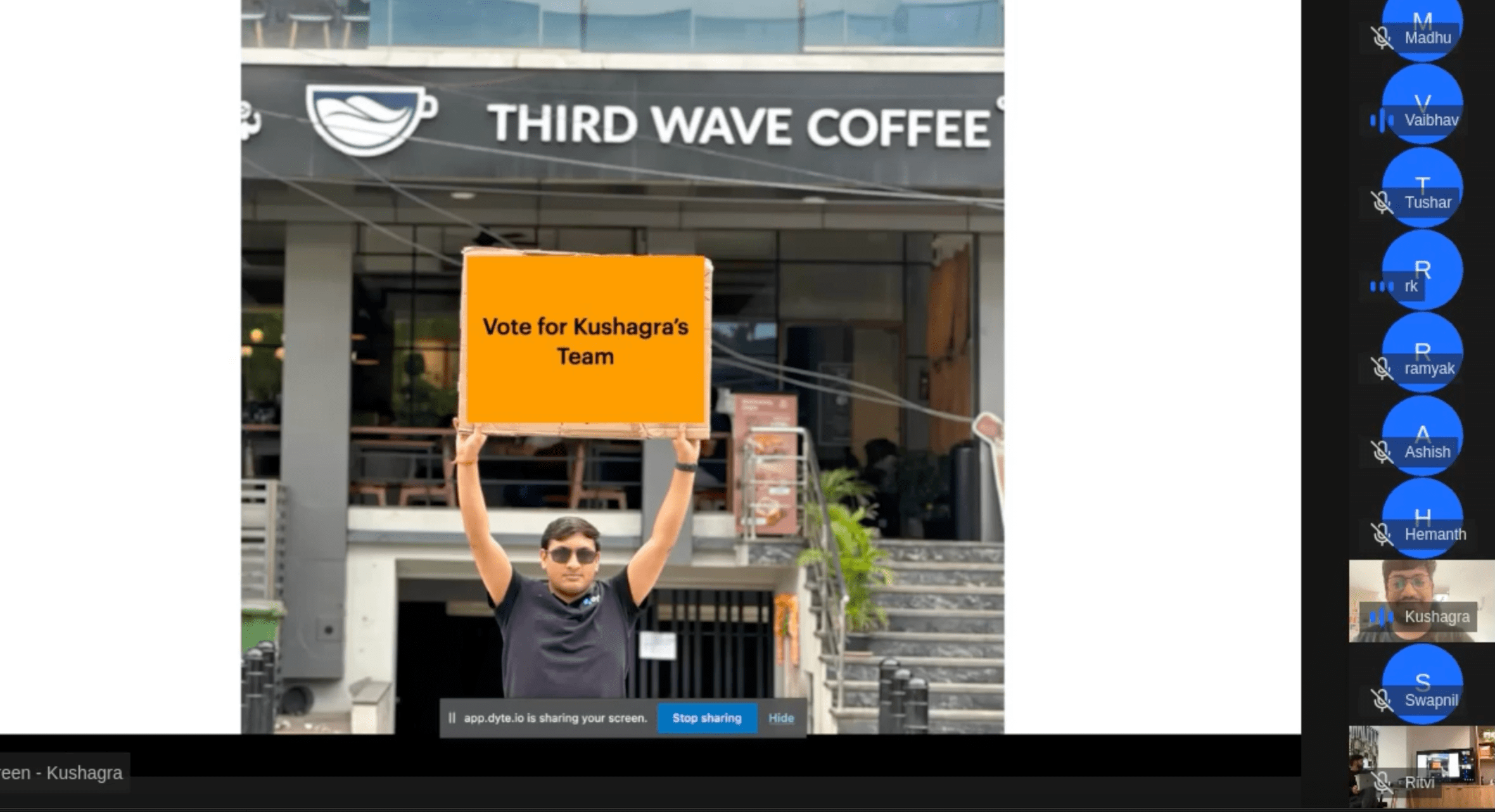
Post-event analysis
In retrospect, DyteHacks 1.0 was a success for the experiment that it was. While not all ideas made it to the implementation phase, the event served its purpose:
Unearthed hidden talents within our teams.
Fostered inter-departmental collaboration.
Birthed a few game-changing ideas for our product pipeline.
Coming full circle: The essence of DyteHacks 1.0
Revisiting our initial intent, the hackathon did not just serve as a team-building exercise but as a testament to our company's spirit. A company that champions innovation, encourages risks, and above all, believes in the power of its people.
DyteHacks 1.0 is not the end; it's just the beginning of many such explorations, proving why companies should always invest in platforms that empower their employees to think beyond the conventional.

